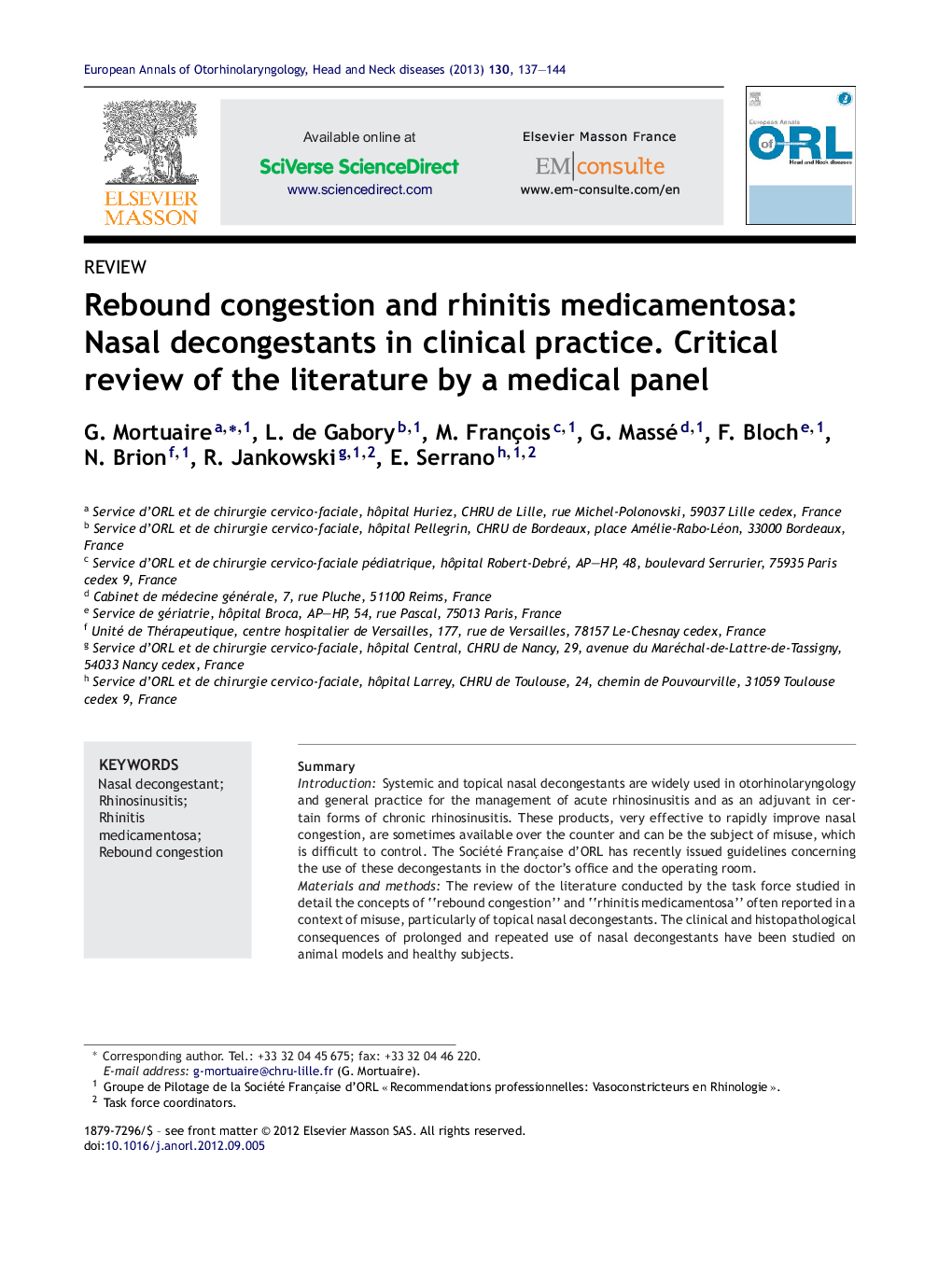| کد مقاله | کد نشریه | سال انتشار | مقاله انگلیسی | نسخه تمام متن |
|---|---|---|---|---|
| 4110289 | 1605736 | 2013 | 8 صفحه PDF | دانلود رایگان |

SummaryIntroductionSystemic and topical nasal decongestants are widely used in otorhinolaryngology and general practice for the management of acute rhinosinusitis and as an adjuvant in certain forms of chronic rhinosinusitis. These products, very effective to rapidly improve nasal congestion, are sometimes available over the counter and can be the subject of misuse, which is difficult to control. The Société Française d’ORL has recently issued guidelines concerning the use of these decongestants in the doctor's office and the operating room.Materials and methodsThe review of the literature conducted by the task force studied in detail the concepts of “rebound congestion” and “rhinitis medicamentosa” often reported in a context of misuse, particularly of topical nasal decongestants. The clinical and histopathological consequences of prolonged and repeated use of nasal decongestants have been studied on animal models and healthy subjects.ResultsDiscordant results have been obtained, as some authors reported a harmful effect of nasal decongestants on the nasal mucosa, while others did not identify any significant changes. No study has been able to distinguish between inflammatory lesions induced by chronic rhinosinusitis and lesions possibly related to the use of nasal decongestants.DiscussionThe task force explained the rebound congestion observed after stopping nasal decongestant treatment by return of the nasal congestion induced by rhinosinusitis and rejected the concept of rhinitis medicamentosa in the absence of scientific evidence from patients with rhinosinusitis.ConclusionNasal decongestants are recommended for the management of acute rhinosinusitis to reduce the consequences of often disabling nasal congestion. They are also recommended during rhinoscopic examination and for preparation of the nasal mucosa prior to endonasal surgery.
Journal: European Annals of Otorhinolaryngology, Head and Neck Diseases - Volume 130, Issue 3, June 2013, Pages 137–144